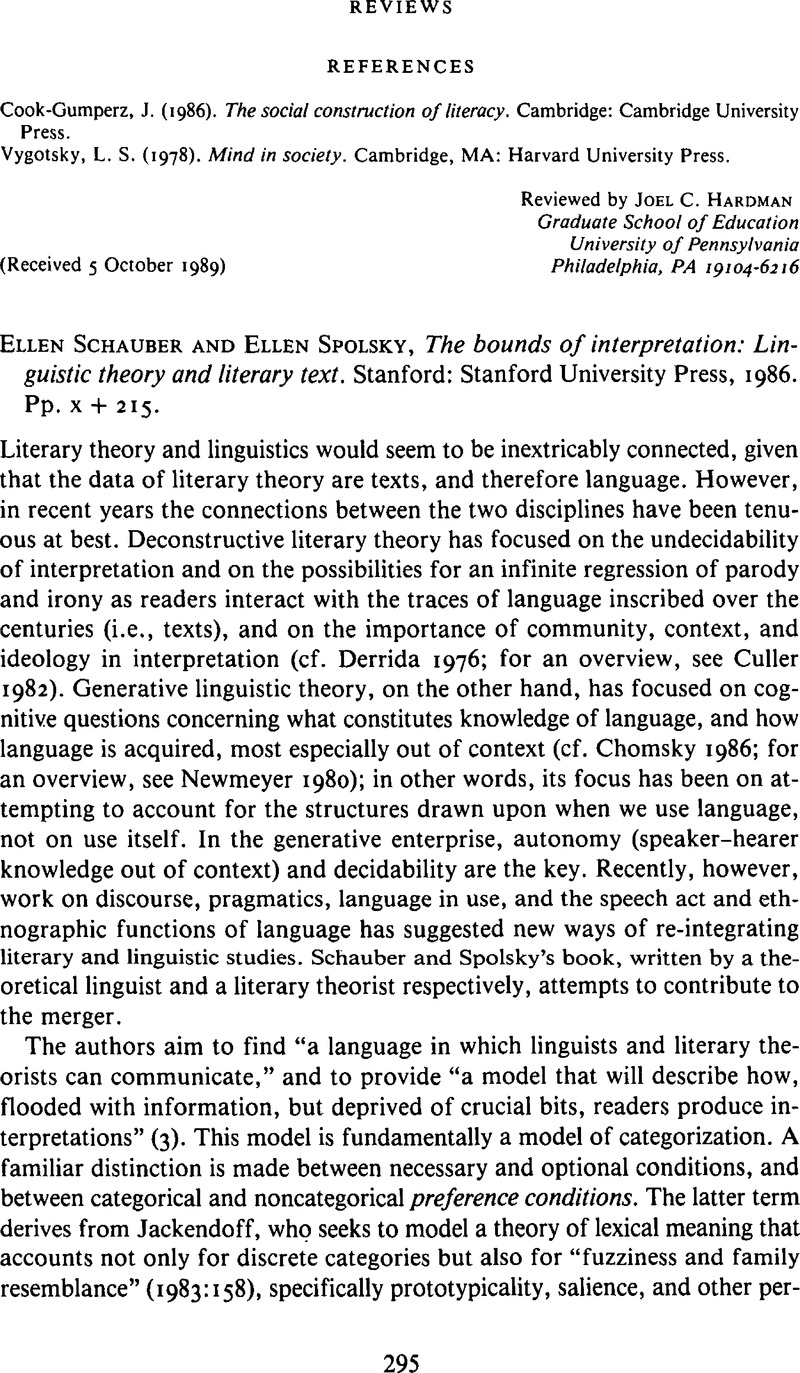No CrossRef data available.
Article contents
Ellen Schauber and Ellen Spolsky, The bounds of interpretation: Linguistic theory and literary text. Stanford: Stanford University Press, 1986. Pp. x + 215.
Published online by Cambridge University Press: 18 December 2008
Abstract
An abstract is not available for this content so a preview has been provided. Please use the Get access link above for information on how to access this content.

- Type
- Book Review
- Information
- Copyright
- Copyright © Cambridge University Press 1990
References
REFERENCES
Culler, J. (1975). Structuralist poetics: Structuralism, linguistics, and the study of literature. Ithaca, NY: Cornell University Press.CrossRefGoogle Scholar
Culler, J. (1982). On deconstruction: Theory and criticism after structuralism. Ithaca, NY: Cornell University Press.Google Scholar
Derrida, J. (1976). Of grammatology, trans, by Spivak, G. C.. Baltimore, MD: The Johns Hopkins University Press.Google Scholar
Du Bois, J. W. (1985). Competing motivations. In Haiman, J. (ed.), Iconicity in syntax. Amsterdam: Benjamins. 343–65.CrossRefGoogle Scholar
Hopper, P. (1987). Emergent grammar. Papers from the thirteenth annual meeting of the Berkeley Linguistics Society. 139–57.Google Scholar
Hopper, P., & Thompson, S. (1984). The discourse basis for lexical categories in universal grammar. Language 60: 703–52.CrossRefGoogle Scholar
Hymes, D. (1981). In vain I tried to tell you: Essays in Native American ethnopoetics. Philadelphia: University of Pennsylvania Press.CrossRefGoogle Scholar
Newmeyer, F. (1980). Linguistic theory in America: The first quarter-century of transformational generative grammar. New York: Academic.Google Scholar
Pratt, M. L. (1977). Toward a speech act theory of literary discourse. Bloomington: Indiana University Press.Google Scholar
Tannen, D. (1987). Repetition in conversation: Toward a poetics of talk. Language 63: 574–605.Google Scholar


